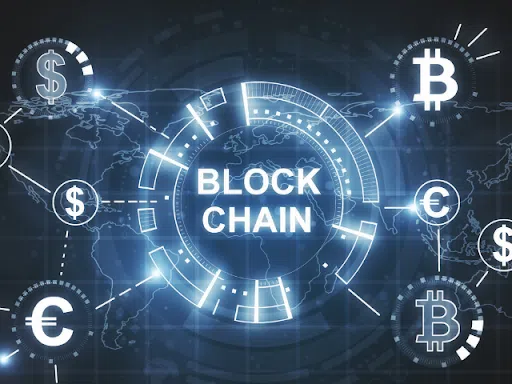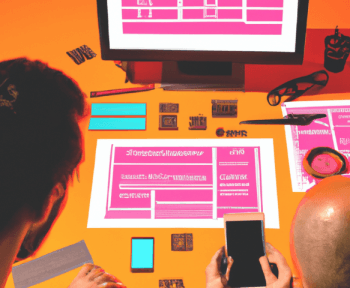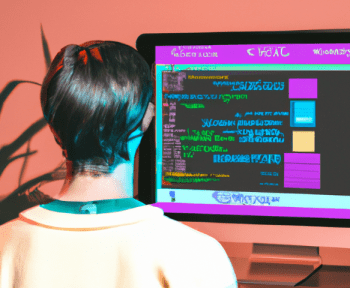Blockchain is not only used in the realm of cryptocurrency, but it is also widely adopted in various industrial fields.
It has found application in finance, real estate, law, manufacturing, healthcare, insurance, and more.
Businesses are continually striving to adopt and develop blockchain technology to meet their specific needs. Consequently, the demand for “Blockchain Developers” is growing.
Even current developers are showing interest in how to become a blockchain developer! In this blog post, we’ll explore this in more detail.
Understanding Blockchain
Blockchain refers to a fixed digital ledger that uses cryptography to record transactions among distributed computer networks and track the flow of assets. It is also often referred to as a ‘public transaction ledger’.
Transactions, or ‘blocks’, are recorded, copied, and stored on each server, known as a ‘node’, connected to the network.
Unlike traditional databases that store records in a centralized location, blockchain provides each node within the network with an independent copy of the ledger, functioning as a decentralized database managed by multiple participants.
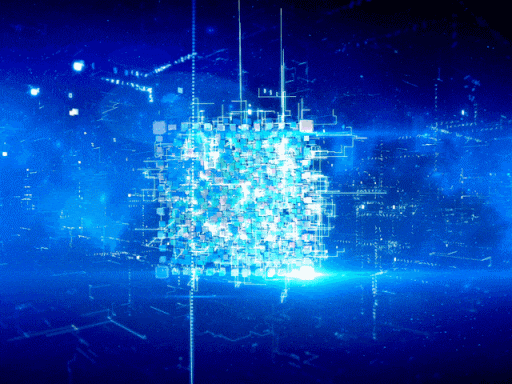
This means that once recorded on the blockchain, it’s nearly impossible to manipulate the data. Furthermore, in case of a record mismatch, one can cross-verify the facts with the copies held by other participants, preventing data manipulation.
The crux of blockchain technology is enabling two or more parties to safely agree on a specific transaction without the intervention of a third party. Hence, transaction parties can easily verify facts about ownership and transaction history without intermediaries, and can establish reliable smart contracts.
What Does a Blockchain Developer Do?
What is Blockchain Development?
Blockchain development is the process of creating and continuously maintaining blockchain platforms to ensure their security and efficiency.
This includes the construction of infrastructure that can create and manage blockchain-based applications and services such as digital currencies, smart contracts, and decentralized apps(DApps). Additionally, it involves developing the tools and technologies needed to support the platform for maintenance and upkeep.
Two Types of Blockchain Developers
There are essentially two types of blockchain developers: Core Blockchain Developers and Blockchain Software Developers.
Core Blockchain Developers & Blockchain Software Developers
Core Blockchain Developers are responsible for designing the security and architecture of the blockchain system. They build the fundamental skeleton of the system. Based on this core architecture, Blockchain Software Developers then develop decentralized applications(DApps) and web applications.
*What is a DApp?
A Decentralized Application (DApp) is an application that runs on a decentralized network, avoiding the control and interference of a single authority.
What Tasks Do Blockchain Developers Undertake?
The scope of a blockchain developer’s responsibilities can vary based on the nature of the project and the two types of developer roles mentioned above.
However, they generally handle the following tasks:
- Designing blockchain protocols
- Backend development according to blockchain protocols
- Designing and implementing blockchain network architecture
- Front-end design and development according to customer needs
- Development and monitoring of smart contracts
- Functionality testing and QA of blockchain solutions
Want to Become a Blockchain Developer?
A blockchain developer isn’t a completely separate breed from typical developers. The key difference lies in their focus on blockchain technology.
However, this specialization requires a deep interest and understanding of blockchain, as well as the relevant skills and experience. Let’s delve into what exactly needs to be prepared to become a blockchain developer.
Becoming a blockchain developer involves understanding the workings of blockchain technology, being familiar with the programming languages necessary for blockchain development, and possessing extensive knowledge of backend development and data structures. Above all, it’s essential to gain practical project experience based on these skills.
Essential Skills
– Programming Languages
To become a blockchain developer, it’s vital to amass the technical knowledge necessary to code and develop various blockchain applications. This often involves leveraging existing programming languages to construct blockchain technology. While there’s no specific language dictated for blockchain development, the most commonly used ones include C++, Java, and Python.
– Blockchain Architecture
A blockchain developer must understand three types of architecture: consortium, public, and private. Further, they need to comprehend distributed ledger technology(DLT) and smart contracts.
Ultimately, they should possess the technology that can be implemented across various industries, such as finance, real estate, law, manufacturing, medical, insurance, and more, and be able to tailor this technology to the specific requirements of a given industry or business.
– Database and Networking
A blockchain network is a decentralized peer-to-peer (P2P) network that shares data amongst all nodes without the need for intermediaries. Hence, for a developer to build and maintain a blockchain network, understanding database management and computer networking is imperative.
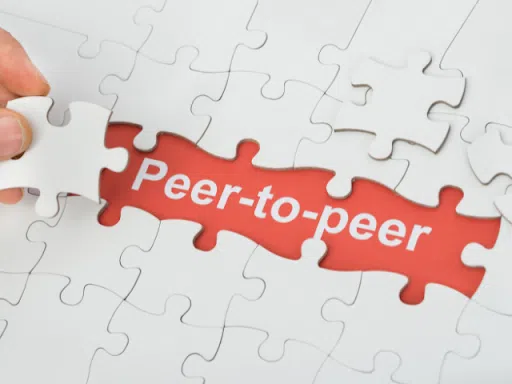
– Data Structures
Comprehending data structures thoroughly can assist in implementing networks and delivering optimized solutions. As they are also used to store data systematically and efficiently, understanding data structures can be advantageous when constructing secure systems in combination with encryption.
– Encryption
Encryption plays a critical role in protecting vital data from unauthorized users or external threats and attacks in blockchain technology. Blockchain technology uses various security protocols to protect data through encryption.
Typically, data is encrypted at the sending end and decrypted at the receiving end using various encryption techniques. Therefore, to establish robust encryption protocols, concepts from mathematics and computer science are necessary.
Let your journey into the world of blockchain development begin! Unleash your potential and dive into this exciting field of technology today.

– Latest technology Knowledge
Understanding the latest technology built on the fundamental concepts of blockchain technology, such as Bitcoin or Ethereum, is also required.
This open-source technology, which many industry experts use, allows blockchain developers to utilize their knowledge in developing special transaction protocols called ‘smart contracts’ and decentralized applications (DApps).
Want to Build Your Career as a Blockchain Developer?
→ Secure blockchain development projects through Elancer.
To build a career as a blockchain developer, not only theoretical knowledge and skills but also practical experience is necessary. For this, it is recommended to apply for and participate in various blockchain projects to gain experience.
If you’re a freelance developer already proficient in the programming languages needed for blockchain development, build your career by developing smart contracts and DApps.
Elancer provides a wide range of opportunities to showcase your skills, network with potential employers, and gain valuable experience in the dynamic world of blockchain.
Unleash your potential today and secure your future as a blockchain developer!

